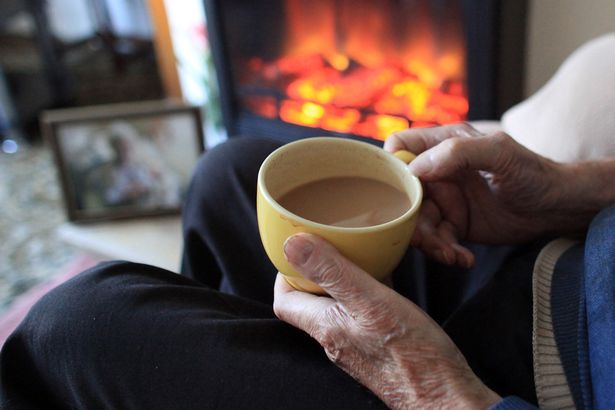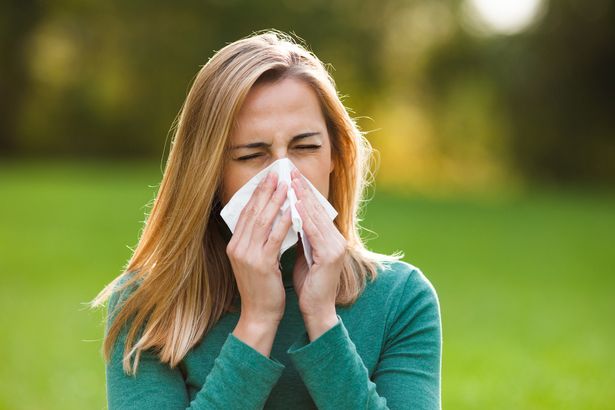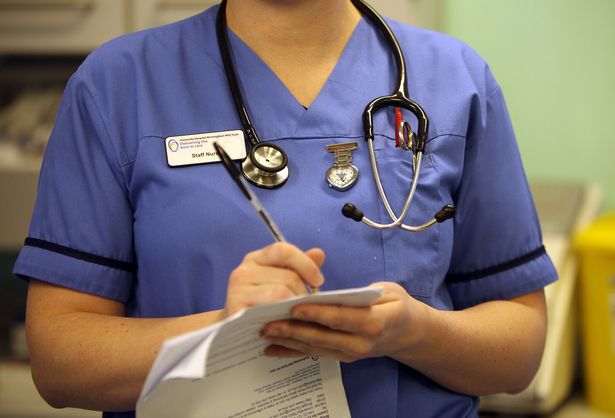Almost everyone on the planet is worried about the coronavirus.
Our anxiety is more acute because we know so little about it.
To help ease your fears, here’s my round-up of what we know, how serious an outbreak in Britain is likely to be and what precautions you can take to keep yourself safe…
How do you catch it?
- It spreads from person to person and there have also been some reports that the virus may spread before symptoms show.
- It’s spread in exactly the same way as flu and colds are – by droplet transmission, where infected micro-droplets of fluid are breathed in by people near an infected person who coughs or sneezes beside them.
- Just as important is transmission by touch, when someone touches a hard contaminated surface such as a door handle or passenger pole on a train or bus and then touches their own face.
What is it?
- The virus is a type of coronavirus, a family that includes the common cold, severe acute respiratory syndrome (SARS) and Middle East respiratory syndrome (MERS).
- MERS was first identified in Saudi Arabia in 2012, and around a third of people infected with the virus died (858 of 2,494 cases) even though its R0 (see below) is less than one.
- The SARS outbreak of 2002-03 led to 8,098 identified cases and 774 deaths (about one in 10). It had an R0 of 2.5.
What is the R0 number?
The R0 is the “reproduction number” and gives the number of people that every infected person could infect.
WHO has estimated that the current R0 for the coronavirus is likely to be 2.6, meaning every person infected could infect up to three others.
How dangerous is it?
- The death rate of this variant of the infection has fluctuated as the numbers change. The current death rate is approaching 4% (3.4%). The good news is that it looks like it has a lower mortality than SARS.
- Plus we’re in good shape in that only 15% or so of infected people require intensive treatment.
- We have a diagnostic test that tells us who’s infected and almost from the beginning there has been transparency from the Chinese authorities. That’s essential because no one can deal with a potential pandemic in one country alone.
Who’s affected by it?
- Middle-aged and older people appear to be affected in greater numbers than children or younger adults but all age groups are at risk.
- People with any long-term medical conditions like diabetes and heart disease are more vulnerable than average, as are people in the older age group.
- If you are in these categories for instance, make sure you take all your heart medications and test your blood sugar regularly, stick to your diet and take antidiabetic drugs.

What are the symptoms?
- The first symptoms of infection are classical flu symptoms, with sore throat, high temperature, headache, cough and sore muscles.
- The virus can cause a fairly rapid onset acute pneumonia with sudden worsening of symptoms and difficulty breathing when a person should be hospitalised as soon as possible.
- In a group of 100 people with the virus, 81 will have only mild symptoms, 14 will get severe symptoms and five will become critically ill.
- The incubation period is 14 days, which is why people are quarantined for that length of time to see if symptoms emerge and they test positive but some experts say it may be longer than 14 days.
- Standard flu treatment would be symptomatic relief for headaches (paracetamol), fever (the same), cough (decongestant) and staying in bed until the fever has subsided.
- Severe symptoms should be dealt with by phoning your GP and not moving out of self-quarantine.
- Your GP will guide you as to whether your symptoms are severe enough to warrant hospital admission.
- One should always be on the lookout for the development of shortness of breath and a spike in temperature as this could mean pneumonia, where an ambulance should be called.

What’s your risk?
- The risk to anyone in the UK who hasn’t had contact with outright infections of coronavirus or suspected cases remains low and we shouldn’t be unduly anxious.
- Most experts believe there’s no need to wear a mask as it does little to provide protection against any virus.
What to do if you think you have the virus?
- Don’t panic, the chances are you have a fairly mild illness
- Keep washing your hands thoroughly and frequently
- Self-quarantine
- Dial NHS 111
- Make a list of the people you’ve been in contact with in the past week so you can supply their names to the authorities
- If you belong to a vulnerable group i.e. you have a chronic medical condition like diabetes, heart disease or lung disease, or you’re in an older age group, be on the lookout for an attack of flu-like symptoms and have a plan of action with your family.
- In the UK people who suspect they’ve been in contact with someone from an infected area in the past 14 days and have developed respiratory symptoms should phone NHS 111.
- If you develop shortness of breath call an ambulance.

How do you self-quarantine?
- Since this outbreak began we’ve heard the words self-quarantine and, other than being shut in your house, few know what it means. It isn’t simply house arrest where you can move around your house from room to room freely, it’s much more rigid than that.
- Self-quarantining is the single most powerful weapon we have in containing an outbreak among us. It means you have to stay in one room, with the door closed. You don’t mix with other people, you don’t see anyone or have any visitors.
- You don’t use common parts of the house like the kitchen, you have your food delivered and it’s left outside of your house for you to collect. When you use the bathroom and toilet you do so after everyone else and you have your own soap and towels kept separate from everyone else’s.
- You collect your own rubbish and it’s put into double plastic bags before you put it outside for collection.
How can it be contained?
- Free exchange of information internationally between health authorities around the world is essential to contain this outbreak.
- Other than a few days at the beginning of the Wuhan epidemic the Chinese authorities have been open, investigated the infection rapidly and thoroughly, and shared that information with the international community. As a result, neighbouring countries are able to prepare well in advance of any cases that may arrive on their shores.
- UK health authorities are meticulously screening anyone who has come from or had contact with someone from a coronavirus area, or anyone with a known infection. Screening includes a 14-day quarantine period at specialist centres throughout the UK. We’re quarantining and testing suspected cases.
Is there a vaccine?
- Research groups all over the world, including the UK are working at great speed to develop a vaccine. Our best estimate is one could be available towards the end of the year but probably not sooner.
- However, a vaccine would hold out the greatest promise of our being able to prevent this virus from becoming a dangerous pandemic.
How can you protect yourself?
- The most important precaution we can take is to be meticulous about hand washing and that includes children. That means washing your hands regularly and thoroughly with soap and water for at least 20 seconds.
- If you cough, always cover your mouth then wash your hands, and if you have to sneeze do so into the crook of your elbow. Avoid touching your eyes, nose and mouth if at all possible (to prevent viral transmission from the hands to the face) and disinfect any surfaces you regularly touch.
Tracing contacts
- We stand the best chance of containing this outbreak with two precautions: self-quarantining as described above and tracing contacts.
- We know roughly that every person who’s infected could infect between one and three others so it’s essential, as a minimum, these people are contacted and tested for the virus.
- Tracing contacts is crucial because it give us some control over the spread of the virus. It may extend beyond a group of people who have been together and follow them as they have travelled, even to another country, to track possible carriers.

